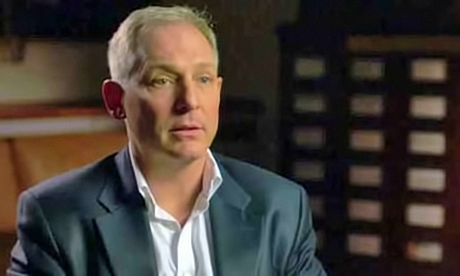During the long reign of Pope John Paul II the Vatican’s semi-official newspaper, L’Osservatore Romano, was regularly derided as the church’s version of Pravda – the propaganda rag that the Communist Party in the former Soviet Union disseminated each day under the banner of “Truth.”
The Vatican paper, which had devolved into a receptacle of official papal speeches and documents issued during the pontificate of the now-sainted pope, at times published editorials that defended even the most indefensible policies and actions of the papacy and the Holy See.
Like Pravda it was the official organ of the church’s own “central committee.”
How ironic, then, that today L’Osservatore Romano stands defiantly as perhaps the Vatican’s last and most trusted bulwark against the very propaganda and “spin” it was once accused of spreading.
Its credibility has only increased over the last three years, beginning in June 2015 when Pope Francis entrusted Msgr. Dario Viganò – a priest from Milan whose main claim to fame is being an expert on Italian cinema – with the arduous task of radically reforming and consolidating the Vatican’s largely uncoordinated, multi-faceted and underfunded media sector.
People generally have a difficult time adjusting to change (especially when they are not consulted), so reformers are not often welcomed with a warm embrace.
But it is no stretch to say that the 55-year-old Viganò is probably one of the most unpopular officials in the entire Roman Curia, at least among the several hundred employees that fall directly under the Secretariat for Communications of which he is the prefect.
His wrecking ball tactics, and his failure to provide precise details on what the final configuration of this new multi-media conglomerate is supposed to look like, has alienated the journalists, editors and technical staff under his direction.
Employees of the former Vatican Radio – which Viganò unceremoniously shut down last year – and those who work at the other communications-related offices now incorporated into his Secretariat – including the print shop, press office, television and film production center, among others – speak of a “general malaise,” “confusion” and “lack of clear direction” that the media reform has caused.
In his cash-strapped department, the Milanese prefect has eliminated a substantial number of employees by encouraging some to take early retirement and letting go of others who are not on permanent contract.
Furthermore, he no longer permits part-time employees (i.e. those who work less than the standard 36 hours per week) from claiming overtime pay.
He has also shuffled people from one office to another, moving some of them even a number of times in just a short period.
The employees in the communications department are among those in the Vatican most supportive of the overall thrust and vision of Pope Francis’ pontificate.
But they remain deeply upset and confused that the pope has given the prefect carte blanche to pursue what seems to be a reform guided by a “make it up as you go” mentality.
After nearly three years most of the formerly independent offices in the media and communications sector are now firmly controlled by Msgr. Viganò’s mega-dicastery.
L’Osservatore Romano is one of the exceptions – for now.
It’s editor-in-chief and senior staff have mounted a quiet, but tenacious resistance to the prefect’s plan (sanctioned by Pope Francis) to finally bring their nearly 160-year-old paper under the Secretariat’s command, as well.
In the last several days L’Osservatore’s resistance has further stiffened and the exasperation of other employees in the Vatican’s communications sector has only increased.
This was occasioned by an incident that prompted secular and other Catholic media to roundly criticize Msgr. Viganò for manipulating a letter from Benedict XVI.
He did so in an effort to show that the former pope and longtime head of the Vatican’s doctrinal office fully endorsed the theological credentials of Pope Francis, something critics of the Jesuit pope have called into question. Continue reading
- Robert Mickens is editor of La Croix International. He writes from Rome, Vatican City.
News category: Analysis and Comment.




